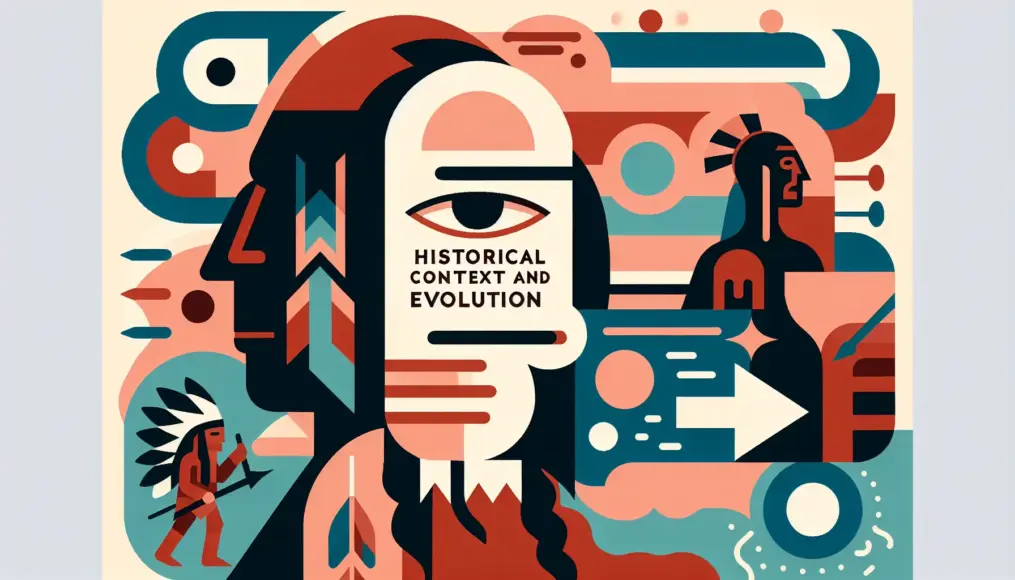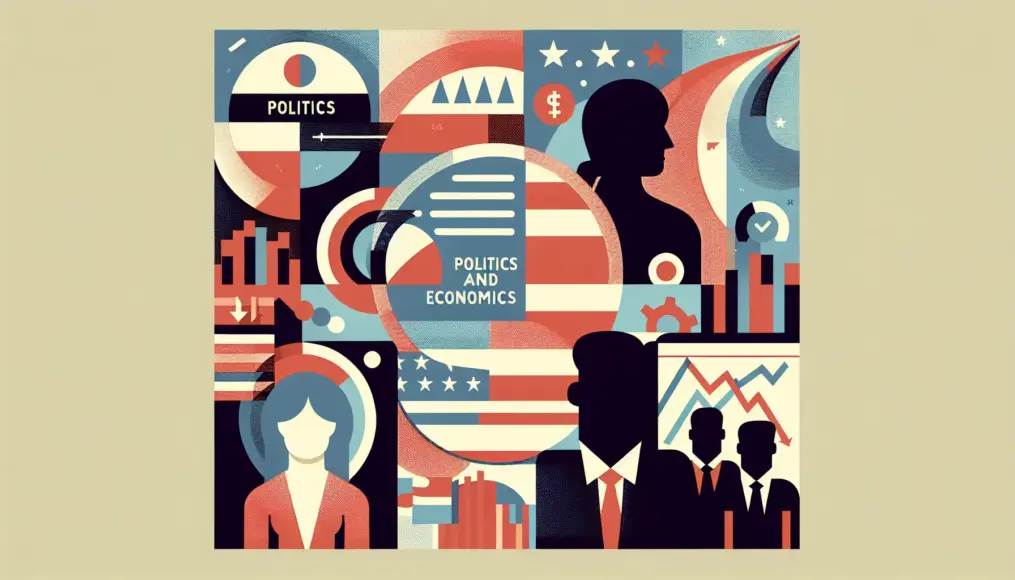Economics and ideology are fundamental elements deeply woven into the fabric of our lives and society. Throughout history, these two aspects have evolved in tandem, influencing one another in various ways. In this article, we will delve into the historical context of economics and thought, examining their impact on contemporary society. We will also explore how the changes in the economy relate to the social issues we face today.
Moreover, we will touch upon new ideas aimed at building a sustainable economy for the future. By considering these perspectives, we may uncover insights that can help us improve the future of our society. We invite you to stay with us until the end.
- Understanding the historical context of economics and thought
- Exploring the influence of economic thought in modern society
- Proposing new ideas for constructing a sustainable economy
The Evolution of Economy and the Influence of Thought
Economy and thought are fundamental elements that underpin our society. In this chapter, we’ll delve into the basic concepts of economics and the historical backdrop of the ideas that have shaped it. By reflecting on how the economy has developed and how people’s perspectives and values have evolved alongside it, we can gain insights into its impact on modern society.
Basic Concepts of Economics
At its core, economics is the study of how limited resources are allocated and utilized. To support people’s livelihoods, the processes of production, distribution, and consumption are crucial. The way these processes function ultimately determines the overall wealth of society.
Moreover, economic activities have transformed over time. For example, as we’ve shifted from an agriculture-based economy to industrialization and now to an information-driven society, various economic models have emerged. Along with these changes, our approaches and thoughts about the economy have evolved as well.
- Economics is the study of resource allocation and utilization.
- The processes of production, distribution, and consumption are vital.
- Economic activities have changed over time.
Historical Background of Thought
To truly understand the evolution of the economy, it’s essential to recognize the historical thoughts that have influenced it. From ancient times to the present, people have developed diverse ideas that shape their perspectives on economic activities. For instance, philosophers in ancient Greece focused on the ethical aspects of the economy, contemplating how to achieve a fair society.
As we moved into modern times, thinkers like Adam Smith and Karl Marx drew attention to the mechanisms of the economy and the societal structures behind them. Their ideas not only laid the groundwork for economics as a discipline but also significantly influenced societal values and policies. Thus, the relationship between economy and thought is inextricable.

If this article piqued your interest, you might also enjoy reading “The Political Changes in Japan Brought About by Student Movements.” This piece provides a detailed exploration of the impact of student movements on Japanese politics and offers further insights into the relationship between economy and thought.
- Various thoughts have influenced economic activities.
- Ancient Greek philosophers focused on ethical dimensions.
- Modern thinkers laid the foundation for economics.
The Evolution of Economic Thought Throughout History
Economic thought has developed in various forms throughout history. In this section, we will explore the shifts in economic ideas from ancient times through the medieval period, culminating in the emergence of modern economics. By examining how economics has influenced people’s thoughts and, conversely, how ideas have contributed to economic development, we can gain a deeper understanding of today’s economic landscape.
Economic Thought from Ancient to Medieval Times
In ancient times, economic thought primarily developed within agrarian societies. For instance, in ancient Greece, economic activities were closely tied to ethics and justice. Philosophers contemplated how to build a fair society, viewing economics not merely as the exchange of goods but as a vital component for societal harmony.
As we moved into the medieval period, economic thought began to be shaped by Christian influences, leading to a shift in perspectives on commercial activities. While the actions of merchants and craftsmen gained recognition, the pursuit of profit was often ethically questioned. Against this backdrop, economic thought became more complex, impacting people’s values and ways of life.
- In ancient Greece, economics and ethics were intertwined
- Changes in economic thought influenced by Christianity during the medieval period
- Economic activities emerged as crucial for societal harmony
The Birth of Modern Economics
With the advent of modernity, economics began to establish itself as a distinct field of study. Adam Smith introduced the concept of the “invisible hand,” arguing that free market competition drives economic growth. His ideas laid the foundation for capitalism, illustrating how economic activities are rooted in individual freedom and the pursuit of profit.
Following Smith, Karl Marx focused on the contradictions of capitalism, advocating for the rights of workers. His perspective delved deep into economic structures and sparked discussions about societal inequality. In this way, modern economics has captured a wide array of viewpoints, significantly influencing contemporary economic thought.
- Adam Smith proposed the concept of the “invisible hand”
- Modern economics laid the groundwork for capitalism
- Karl Marx’s ideas championed workers’ rights
The Relationship Between Economy and Thought in Modern Society
In today’s world, the economy and ideology are becoming increasingly intertwined. Particularly in an era of globalization, economic systems and values are influencing each other across borders. This chapter explores how the global economy is reshaping ideologies and the social issues we face as a result. By understanding the interplay between economy and thought, we can uncover clues to building a better future.
The Global Economy and Changing Ideologies
The rise of the global economy has significantly impacted the lifestyles and values of people worldwide. For example, the widespread use of the internet has enabled information to spread instantaneously across the globe. This flow of information affects not only economic activities but also people’s thoughts and cultures.
Moreover, the exchange of different cultures and economies has led to the coexistence of diverse ideologies. As a result, new economic models and business forms that were once unimaginable are now emerging. These changes broaden our perspectives on economics, allowing for more flexible approaches.
- Globalization connects economy and ideology
- The internet’s spread influences values
- Diverse ideologies give rise to new economic models
Impacts on Social Issues
However, the advancement of the global economy also contributes to various social problems. For instance, the widening economic gap and deteriorating labor conditions are particularly pronounced in developing countries. These issues can be seen as a consequence of prioritizing economic gain over people’s well-being and environmental health.
Furthermore, the ideologies and values surrounding these problems are also shifting. There is a growing emphasis on economic sustainability and social responsibility, leading businesses and individuals to consider how they can contribute to society. Such changes could be key to building a better society for the future.
- The global economy can also trigger social issues
- The economic gap and poor labor conditions are critical problems
- There’s a rising movement towards sustainability and social responsibility
The Potential of Economic Thought for a Sustainable Future
When we think about the future, economic thought holds significant potential. Building a sustainable economy and proposing new ideas are crucial themes for creating a better society. In this chapter, we will explore how economies that take environmental and social factors into account can evolve and how new value-driven economic models can emerge. By adopting these perspectives, we can make better choices for the future.
Building a Sustainable Economy
A sustainable economy aims for economic growth while being kind to the environment and society. For instance, utilizing renewable energy and promoting recycling are examples of how we can engage in economic activities while protecting our planet. Such initiatives are gaining attention in many countries and companies because they demonstrate that economic growth can coexist with environmental stewardship.
Moreover, consumer awareness plays a vital role in realizing a sustainable economy. Choosing eco-friendly products and practicing environmentally conscious lifestyles are essential actions each of us can take. As these efforts gain traction, it is expected that the economy will move toward a more sustainable direction.
- A sustainable economy aims for environmentally friendly growth
- Renewable energy and recycling are key components
- Consumer awareness supports a sustainable economy
Proposing New Ideas
The future of the economy requires fresh thinking. There’s a growing demand for economic models that prioritize not just profit but also the overall happiness of society and environmental protection. Concepts like “empathetic economy” and “social business” are gaining traction as part of this shift. These ideas encourage companies to seek profits while also building trust through social contributions.
Furthermore, advancements in technology are also influencing economic thought. With the development of AI and blockchain technology, transactions are becoming more transparent, aiding the creation of a fairer economy. The combination of these new ideas and technologies is expected to evolve the economy into a more sustainable and socially responsible form.
- New ideas prioritize the happiness of society as a whole
- Empathetic economy and social business are gaining attention
- Advances in technology influence economic thought
Conclusion
In this article, we’ve explored the historical evolution of economics and thought, reflecting on their impact on modern society and the possibilities that lie ahead. It’s become clear that economics is not just about the exchange of goods; it’s deeply intertwined with our beliefs and values. Additionally, considering how the construction of a sustainable economy and the introduction of new ideas can contribute to our future is vital.
Each of us plays a role in creating a better society by being conscious and participating in economic activities. As we think about the future of our economy, let’s not forget the lessons of the past and embrace new values that will guide us forward.
- Economics and thought are closely connected
- There is a need for building a sustainable economy
- New ideas have the potential to shape the economy of the future
Are you ready to join the conversation about the future of our economy? We’d love to hear your thoughts and opinions in the comments!


Comment